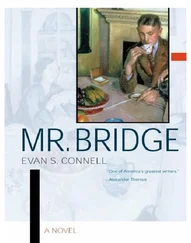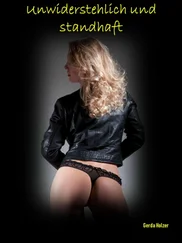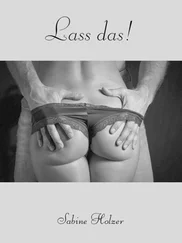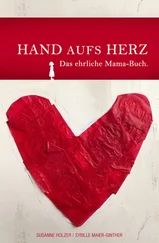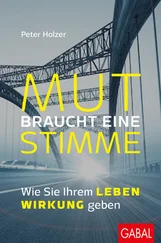The shadow ruptured like broken glass. He had turned to respond to something Kurt was saying.
She dropped back onto the towel and closed her eyes, feeling cold even though the sun was back.
* * *
When the helicopter was ready to board the passengers for the flight back, everyone resumed the seats they’d occupied before. Takeoff was uneventful.
As soon as the aircraft reached the altitude for horizontal flight, Kiril addressed the Brenners. “Before we took off, I instructed the captain to fly as low as possible as we approach East Berlin. I thought you might like to see East Germany’s newest attempt at improving its security against ‘capitalist encroachment’ on its sovereignty.”
Adrienne Brenner went into high alert, immediately grasping what Andreyev was getting at. Convinced that there was a subtext to everything he said and did, and given the worldwide headlines a month or so earlier about East Germany’s newest attempt to “improve its security,” he had to be talking about The Wall.
Before leaving New York, she had learned as much as she could about what was happening. Then on August 12, 1961, just a few weeks before she and Kurt set foot on East German soil, the Council of Ministers of the GDR had put out a patently self-serving and facially absurd statement.
“I know what you’re talking about,” she told Andreyev as she flipped to a page in her notebook. She paraphrased the Council of Ministers’ statement. How, in order to put a stop to the “hostile” activity of West Germany’s and West Berlin’s “attempt to regain lost territory and militaristic forces,” border controls of the kind generally found in every sovereign state would be set up at the border of the German Democratic Republic. Adrienne looked up from her notes. “What prompted the creation of those so-called border controls, Dr. Andreyev?”
“Mind changing seats with me for a few minutes?” Kiril asked Brenner. “It will make it easier for me to answer your wife’s questions.”
Brenner shrugged indifferently and took the seat next to Galya.
“Five years after the end of World War II—between 1950 and 1953—nearly one million citizens of the GDP’s workers’ paradise moved to West Germany. As the American saying goes, they voted with their feet. A quarter-million left within the first six months.”
Adrienne scanned her notes. “A million people in three years,” she said evenly. “How long did this go on?”
“A few more years. In 1957 the Communists imposed a passport law severely reducing the number of people leaving East Germany. Ironically, it was as if pressure applied to one end of a balloon forced the other end to bulge. By the end of 1958, the percentage of refugees using West Berlin as an escape hatch rose from sixty to ninety percent. And don’t forget, the subway was still running between East and West Berlin.”
“All defectors had to do was take a subway ?”
He nodded, almost as if he couldn’t trust his voice. But Adrienne saw in his expression what he was unable to hide: a terrible sense of longing.
“How many people escaped?” she asked.
“By the end of 1961? Three and a half million East Germans—20 percent of the population. And because most of them were young and well-educated—physicians, teachers, engineers, skilled workers—some party officials were calling it a ‘brain drain.’ It got so bad that by 1960, only 61 per cent of East Germany’s population was of working age. It was obvious that the combined efforts of East Germany and the Soviet Union were needed to avert a crisis.”
“Are you telling me this combined effort has already begun?!”
“Several weeks ago. At midnight on August 12 to 13. East German Vopos and soldiers began to close the East to West Berlin border. Streets running parallel to the border were torn up. Barbed wire was strung. Four days later, the regime began to lay large concrete blocks. Guards were ordered to shoot anyone attempting to cross the border. According to Soviet intelligence, all of East Germany and East Berlin will in time be entirely sealed off from the West.”
“How exactly?”
“With chain fences. Concrete walls. Minefields in a no-man’s-land ‘death zone’ between what will later become two walls parallel to each other and snaking for miles. Vicious guard dogs will be caged and released to find and kill people trying to escape.”
“People whose only crime is wanting to be free,” she whispered.
“The entire East German population will be caged in,” he told her. “Family members will be sealed off from one another.”
Reaching for the wall telephone, he told Rolf Gruner in German to get as low as he could over what Kiril thought of as the early stages of The Wall’s construction.
“I’ll do my best,” Gruner replied after a moment’s hesitation. “But I can’t enter West German airspace and I sure as hell don’t relish getting shot down in the East.”
“Thanks,” Kiril said as Gruner swung as close as he dared to the East Berlin side of the wall. He translated for the others, making sure Kurt Brenner, as well as his wife, heard him loud and clear.
Adrienne had stopped taking notes. Pressing her face to the large window next to her seat, she followed the helicopter’s trajectory—treetop level. Her face felt oddly still… like a wax dummy’s. She zeroed in on the smooth gray of concrete. The grainy unevenness of cement. The still-intact wall of some forgotten home. An unbroken series of bricked-up doors and windows. She shivered as a bright gold speck signaled malevolently—the sun’s reflection caught and held by razor-sharp glass shards all along the top. Like a sewing machine needle on a band of retreating fabric, her eyes drilled down the wall. She spotted a roller device—lengths of pipe atop the wall that forged a path through the broken glass so that anyone groping desperately for a handhold would slip. Between the pipes she saw metal poles with outspread arms, taut wires stretching from one pole to the next. Electrified? she wondered, closing her eyes as she stifled the urge to weep for its future victims.
Gruner banked sharply.
“Our pilot wants to avoid not just West Berlin,” Kiril explained, “but what might be called ‘aggressive notice’ from East Berlin radar.”
They were flying low enough for Adrienne to see a large park with a huge bronze statue on a white pedestal. She asked Kiril about it.
“The park? It’s the East Berlin Soviet War Memorial in Treptower Park.”
“A memorial to what?” Adrienne asked cautiously.
“More precisely, to whom . It’s a military cemetery—an enormous mass grave commemorating 5,000 Soviet soldiers who died in the battle for Berlin.”
Adrienne restrained a shudder. “What is it about mass burials and unmarked graves that seems so… so unsettling?” she wondered aloud.
“When a man dies, he should be permitted the dignity and solitude of a private resting place, not—” Kiril’s mouth twisted. “—not lowered into some anonymous collection of humanity.”
Luka Rogov understood virtually nothing of Kiril’s explanation. But his face brightened at the mention of the word “ Treptower.” He’d heard about Treptower, all right. Tugging at Kiril’s sleeve, he said in Russian, “Look down there.”
“At what? I see the park, a bronze statue—and now the cemetery.”
“No, not cemetery of Great Patriotic War. Look at what comes after . ”
“I see a field of some kind,” Kiril said, puzzled.
“Is secret, this field.” Rogov lowered his voice as if he were a fellow conspirator.
“Then why tell me?” Kiril asked warily.
“From kindness,” Luka said with a sly, setting-a-trap smile. “Field is new but not empty. You like know what is in it?”
Читать дальше

